Introduction to Dog Chews and Bones
Selecting the ideal chew for your dog is crucial for their overall well-being. At Pet Coach SG, we know how important it is to choose the best chew bones for dogs that cater to their natural instincts while promoting dental health and enrichment. With numerous opinions about dog chews and bones, our goal is to provide you with expert recommendations to help you select the best dog bones for your furry friend.
Enrichment in Dogs: Understanding the Natural Instinct to Chew
Chewing is an instinctual behavior for dogs, deeply embedded in their evolutionary background. For many dogs, chewing is not merely an activity but a vital part of their mental and physical health. It helps reduce boredom, stimulates their mind, and supports dental hygiene by minimizing plaque and tartar. Choosing the right chewable bones for dogs can enhance these benefits and contribute to a happier, healthier dog.
How to Select the Right Chew for Your Dog
When selecting a chew for your dog, consider the following factors:
- Size and Chewing Strength: Ensure the chew matches your dog’s size and chewing strength. Hard chews may not be suitable for small or elderly dogs with delicate teeth.
- Material Safety: Choose chews made from non-toxic, safe materials. Avoid products with harmful additives or artificial ingredients.
- Dental Health: Look for chews that contribute to dental care, helping to clean teeth and massage gums. Dental chews for dogs can be particularly beneficial.
- Durability: Opt for chews that can endure your dog’s chewing without breaking into small, swallowable pieces.
Top 10 Recommended Dog Chews (Arranged by Hardness)
1. Deer Antlers
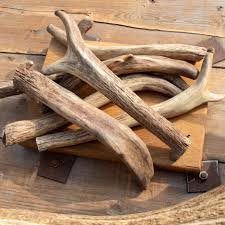
- Composition: Natural, mineral-rich antlers from deer.
- Considerations: Extremely hard, making them ideal for strong chewers like German Shepherds, Labrador Retrievers, and Rottweilers. They may be too tough for small dogs or those with dental issues. Ensure the antler is appropriately sized to prevent splintering and monitor chewing to avoid potential dental damage or fractures.
2. Yak Chew
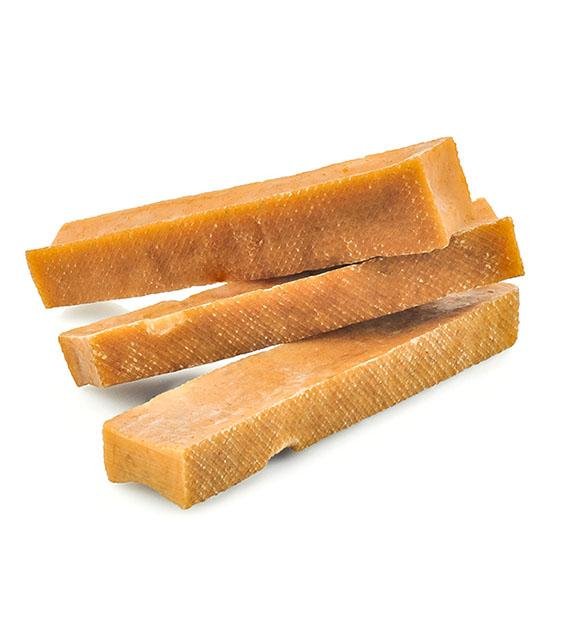
- Composition: Made from compressed yak milk and natural ingredients.
- Considerations: Very hard but durable, suitable for vigorous chewers like Border Collies, Siberian Huskies, and Australian Shepherds. They may be challenging for dogs with sensitive teeth. Monitor your dog initially to prevent tooth wear or discomfort and ensure they handle the chew effectively.
3. Beef Achilles Tendon
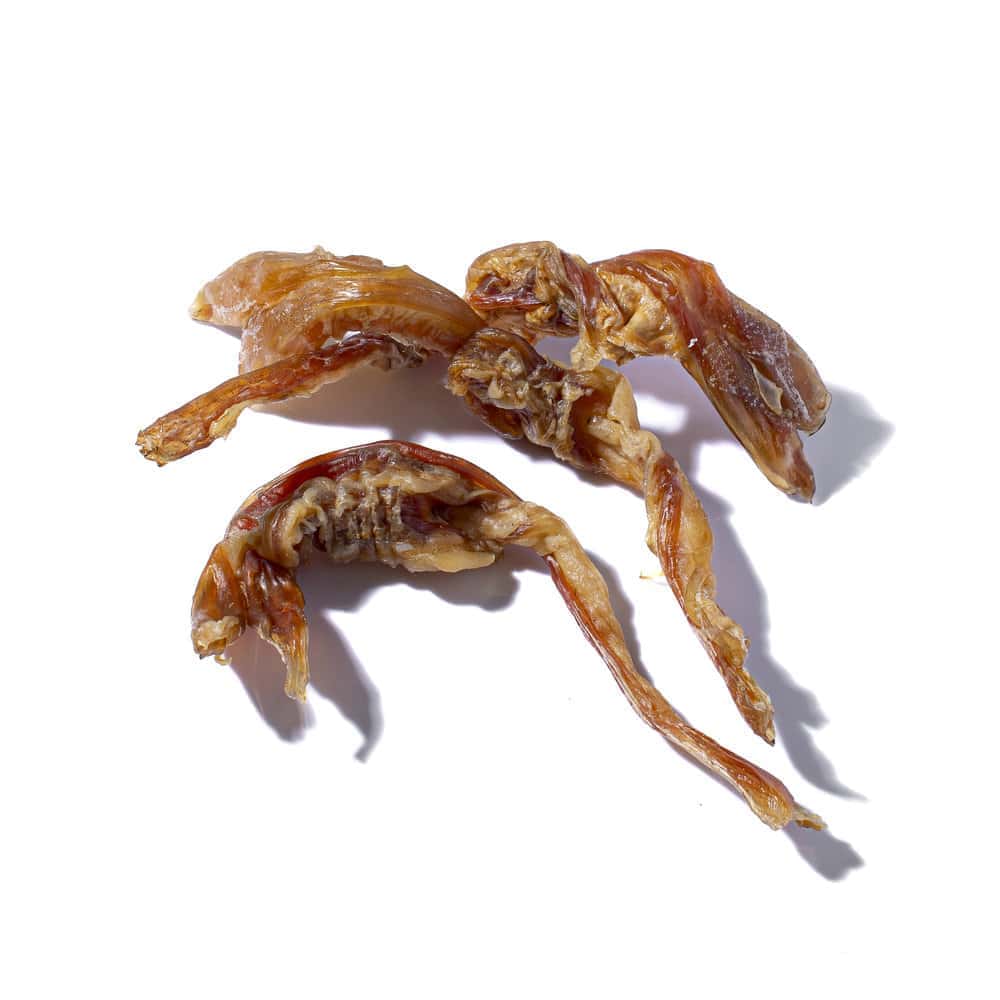
- Composition: Natural tendon, rich in protein and collagen.
- Considerations: Hard and challenging, excellent for dental health. Breeds such as Belgian Malinois, Pit Bull Terriers, and Boxers are well-suited. For all dogs, it’s recommended to supervise to avoid risks like broken teeth or excessive wear. Regular checks will help ensure safe chewing.
4. Kangaroo Tendon
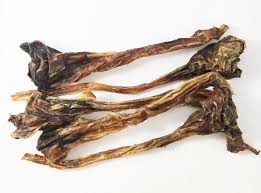
- Composition: Lean, high-protein tendon from kangaroo.
- Considerations: Slightly less hard than beef tendons but still robust. Suitable for breeds with moderate to strong chewing capabilities like Golden Retrievers, Australian Cattle Dogs, and Weimaraners. Supervision is advisable to monitor how your dog handles the chew, especially if they are new to tougher chews.
5. Ostrich Bone
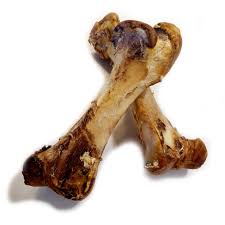
- Composition: Dense bone with a natural texture.
- Considerations: Moderate hardness, suitable for strong chewers such as Doberman Pinschers, Border Collies, and Alaskan Malamutes. While not as hard as other options, ensure proper sizing to avoid splintering. Regular inspections are important to maintain safety.
6. Bunny Ear
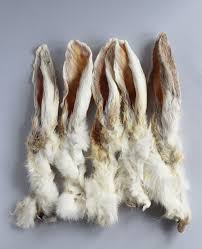
- Composition: Natural, protein-rich ear from rabbits.
- Considerations: Moderately hard, suitable for moderate chewers like Beagles, Cocker Spaniels, and Poodles. They may be challenging for very small dogs. Monitor your dog to prevent choking or digestive issues, and ensure the chew is appropriately sized.
7. Braided Bully Stick
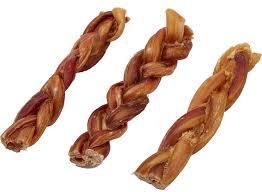
- Composition: Made from braided beef pizzle, providing extra texture.
- Considerations: Slightly tougher than regular bully sticks but still relatively soft. Ideal for breeds with moderate to strong chewing abilities like Boxers, Labrador Retrievers, and French Bulldogs. Watch for choking hazards, especially with smaller dogs, and monitor their chewing.
8. Bully Stick
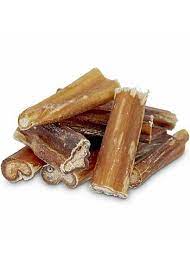
- Composition: Made from beef pizzle, digestible and protein-rich.
- Considerations: Relatively soft and easy to chew, suitable for all sizes of dogs including Dachshunds, Golden Retrievers, and Shih Tzus. Although softer, it’s still good practice to supervise to prevent overconsumption and gastrointestinal issues.
9. Edible Soft Dental Chews
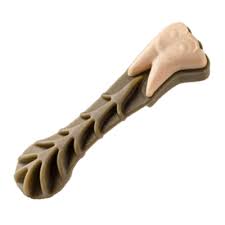
- Composition: Made from digestible, soft materials like rice flour, proteins, or vegetables, often with added enzymes for dental health.
- Considerations: Ideal for dogs with sensitive teeth, such as Maltese and Yorkshire Terriers. They help reduce plaque and tartar build-up. Despite their softness, supervision is recommended to prevent excessive consumption and ensure the chew is appropriately sized.
10. Chewable Dental Bones
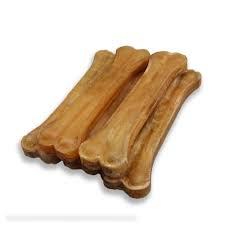
- Composition: Made from natural, digestible ingredients and sometimes include dental benefits like baking soda.
- Considerations: Softer than many hard chews, suitable for dogs needing a gentler option such as Pugs and Boston Terriers. Regular supervision is advisable to ensure proper sizing and to replace worn bones to prevent choking hazards.
Conclusion
When choosing dog chews, it’s essential to select chews that match your dog’s chewing strength and dental health needs. Harder chews like deer antlers and yak chews require careful monitoring to prevent issues such as dental damage or choking. Softer chews, like bully sticks and dental bones, are generally easier but should still be supervised to avoid excessive consumption and potential choking. Always provide fresh water as chewing can make your dog thirsty, and regularly inspect and replace chews to ensure your dog’s safety and health.








